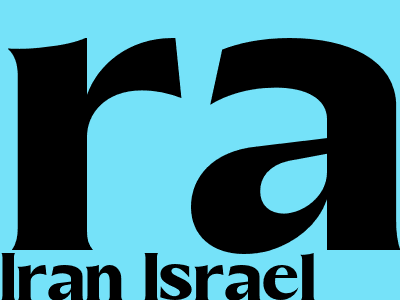
Iran and Israel: A Bitter Rivalry
The Historical Roots of Conflict
The animosity between Iran and Israel has deep historical roots, dating back to the Iranian Revolution of 1979. The revolution brought the fundamentalist Shia regime of Ayatollah Ruhollah Khomeini to power, which immediately adopted a hostile stance towards Israel, declaring it an "illegitimate Zionist entity."
Khomeini's anti-Zionist rhetoric was amplified by Iranian state media, and the country's support for militant groups such as Hezbollah increased. These acts heightened tensions between Iran and Israel, leading to a series of proxy wars and covert operations.
Proxy Wars and Escalation
Hezbollah and the Lebanese Civil War (1975-1990)
Iran played a significant role in the Lebanese Civil War by arming and training Hezbollah, a militant Islamist group based in Lebanon. Hezbollah became a powerful force in the conflict, engaging in military operations against Israel, including the 1983 bombing of the U.S. Marine barracks in Beirut.
The Iran-Iraq War (1980-1988)
During the Iran-Iraq War, Israel provided military support to Iraq, further deteriorating relations with Iran. The conflict intensified the rivalry between the two nations and marked a new era of heightened tensions.
Nuclear Dispute and Global Concerns
Iran's Nuclear Program
In the early 2000s, concerns emerged about Iran's nuclear program and its potential military applications. Israel strongly opposed Iran's nuclear ambitions, viewing them as a serious threat to its security.
International Negotiations and the JCPOA
International negotiations with Iran regarding its nuclear program culminated in the Joint Comprehensive Plan of Action (JCPOA) in 2015. The JCPOA aimed to curb Iran's nuclear capabilities in exchange for sanctions relief.
Regional Rivalry and Influence
Syria, Yemen, and the Middle East
Iran and Israel are key players in shaping Middle Eastern politics. They have supported opposing sides in conflicts such as the Syrian Civil War and the Yemen Civil War, intensifying their rivalry and further dividing the region.
Current State of Relations
As of today, relations between Iran and Israel remain strained. Israel considers Iran its primary strategic threat, while Iran views Israel as an obstacle to its regional ambitions.
The ongoing nuclear dispute and Iran's support for proxy groups in the region continue to fuel tensions. Both countries are wary of each other's military capabilities, and the risk of a direct military confrontation remains a major concern.
Conclusion
The conflict between Iran and Israel is a complex and enduring one, with deep historical roots. Proxy wars, nuclear disputes, and regional rivalry have further escalated tensions, making it one of the most significant geopolitical conflicts in the world. Efforts to resolve the conflict and improve relations have faced significant challenges, and the future dynamics between these two nations remain uncertain.